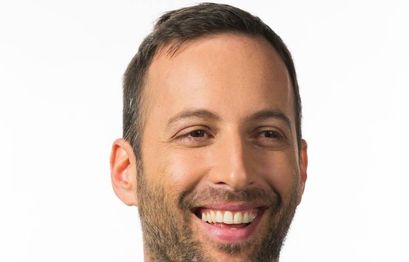While somewhat slow getting to the dance compared to other sectors, financial services are now embracing technology.
That shift began with the desire to provide services better and faster but has grown to include identifying and targeting specific market segments with more effective products and services.
Optimove was founded to do just that, founder and CEO Pini Yakuel said.
The science-fueled relationship marketing hub entered the financial services market this fall, seeking to build on its success helping brands such as Zynga, 1-800-Flowers and Chubb. Their experience taught them the old monologue marketing style where generic messages are thrust upon heterogeneous groups doesn’t cut it anymore.
“Customers expect more,” Mr. Yakuel observed. “They don’t accept spit out messages. We have to be emotionally intelligent and change the ways we speak with different people.”
People do exactly that as they navigate through their different social circles, he said. Think of the conversation topics with the after work crowd as opposed to parents at the kids’ soccer games or relatives at Sunday dinner. Topics change because we identify environmental cues that tell us what our conversational partners are likely to be more interested in. Aunt Myrtle may not care as much about quarterly reports as she does about the kids, while for co-workers it’s the opposite.
[caption id="attachment_71735" align="alignleft" width="300"]
Just as humans use cues like facial expressions to learn what others like, brands employ technology to extract the same results from data, Mr. Yakuel said. Client digital experiences are translated into data points analyzed to build unique profiles. Those profiles dictate product suggestions and more personalized marketing efforts.
That process is aided by Optibot, which Mr. Yakuel has described as a landslide for consumer marketing.
The marketing optimization bot uses artificial intelligence and machine learning to automate the analysis and interpretation of customer marketing campaigns. It evaluates campaigns and can suggest insights designed to increase performance.
Think of it as Tony Stark with and without his Iron Man suit on, Mr. Yakuel explained. Without it he’s a regular man but when he dons the suit he’s capable of much, much more.
“You gain different insights as you learn from the data, you get smarter,” Mr. Yakuel said.
Optibot quickly identifies underperforming campaigns so they can be dropped and resources reallocated to more successful functions. As it learns more about specific campaigns it recommends activation of a self-optimizing feature that decides the customer mix for every action.
Should a campaign only find success with one segment, Optibot recommends splitting the campaign to focus on that one group while developing new initiatives for the remainder. Neglected groups within a campaign are identified.
While technology is able to perform more and more functions, Mr. Yakuel does not subscribe to the notion that they will eventually grow smart enough to completely remove humans from the marketing process. In a recent blog post, he described this idea as “The Fallacy”, the idea one can pair micro-segments with actions that through testing will prove to be the best action for every group – with no price paid for personalization.
“The machine cannot do all that is required, the designing of experiments and asking of questions,” Mr. Yakuel said. “Those processes show and reveal the unique traits of the brain.”
Mr. Yakuel believes there are several reasons why financial institutions took time to embrace technology. Customer loyalty was high because switching costs were expensive. Now that fin-techs are disrupting every area, financial institutions have no choice BUT to adopt technologies (luckily the fin-techs made it more feasible to make the leap).
“All the products are broken apart now,” Mr. Yakuel said. “The fin-techs solve specific problems better than the traditional institutions.”
Another reason for the delayed technological response is muddled organizational structures, Mr. Yakuel said. It takes too long to move from ideation to execution. That can lead to generic messages targeting large groups that will likely produce mixed results. Add in the silo mentality where different ideas or even whole campaigns arise from different areas and you have a big mess.
“You need to work in one studio,” Mr. Yakuel said. “It’s faster and you can actually talk to customers in those crucial intervention points.”
It is also easier to understand what to say and offer when you engage, he added.
When Mr. Yakuel looks to the future he gets most excited about the opportunities arising from data commoditization. As silos are united conversion and retention become part of one process. New anonymous user data can be matched with existing user data to provide faster and better services.
“As we keep unfolding those silos and connecting them, I’m excited about the ability to harness machine learning approaches to get more accurate,” Mr. Yakuel said. “I think we’re getting closer to defining micro-segments and unique journeys but there’s still a way to go.”










